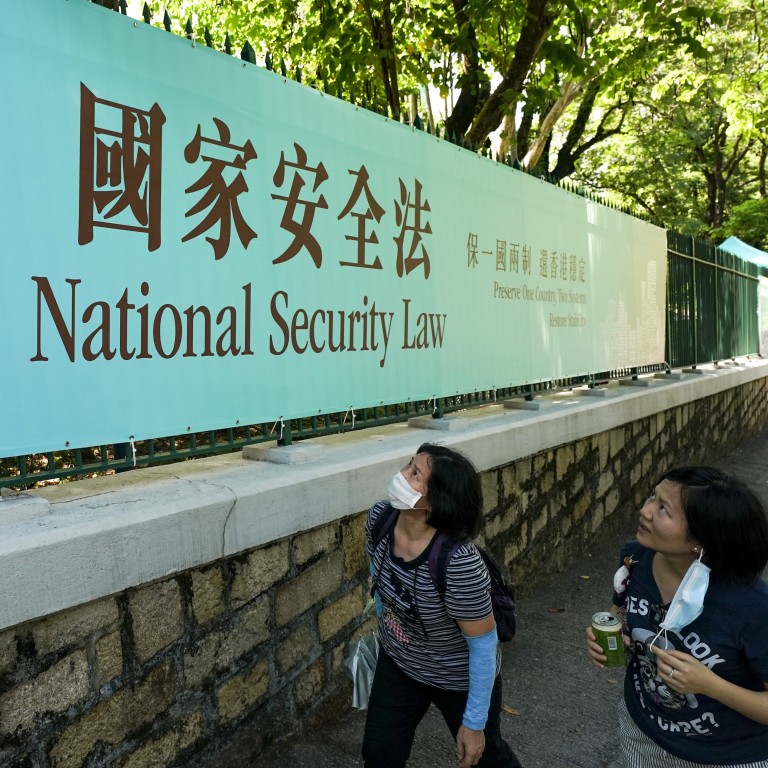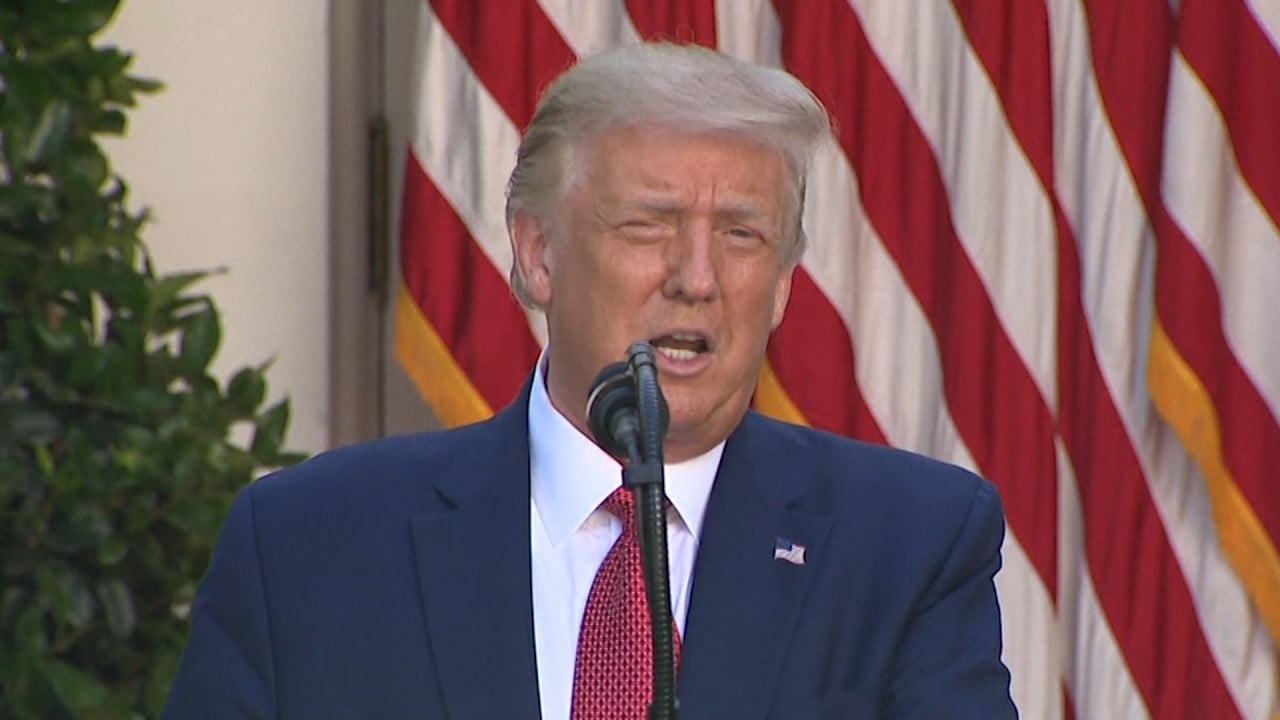
China promises sanctions for US ending of Hong Kong preferential status
- Beijing says American institutions and individuals to be targeted after President Donald Trump signs new law
- Foreign ministry statement describes US actions as ‘violation’ of international norms and ‘interference’ in Chinese internal affairs
A statement by the Chinese foreign ministry said Trump’s move to sign the Hong Kong Autonomy Act into law was a violation of international relations norms, and a serious interference in China’s internal affairs.
“The Chinese government resolutely opposes it and condemns it,” the statement said. “To protect its legitimate interests, China will take necessary action to impose sanctions against related US institutions and individuals.”
“China’s sanctions would follow the pattern of its countermeasures of sanctioning a US entity and four US individuals over the Xinjiang-related issue. It would be reciprocal in number with the US action," said Chen Long, a partner with independent research agency Plenum.
‘Patriots governing Hong Kong is only way to safeguard city’
US senators Chris Van Hollen and Patrick Toomey, who introduced the Hong Kong Autonomy Act, were likely to be on China’s retaliation list. Senator Josh Hawley and some Congressmen may also be targeted, Chen said.
Trump signed the Hong Kong Autonomy Act as well as an executive order ending Hong Kong’s preferential trade treatment on Tuesday. In signing the law, Trump said Hong Kong would be treated the same as mainland China.
“No special privileges, no special economic treatment, and no export of sensitive technologies,” he said.
Hong Kong national security law official English version:
The executive order and Trump’s signing of the Hong Kong Autonomy Act – shortly before a deadline for the US leader to sign or veto the legislation – are the latest salvoes in Washington’s retaliation for Beijing’s imposition of a sweeping national security law on the city.
The details of Trump’s executive order include an elimination of preferential treatment for Hong Kong SAR passport holders compared to China passport holders, as well as a suspension of the agreement between Hong Kong and the US over the surrender of fugitive offenders.
US drops plan to deport foreign students taking online-only classes
The executive order also ends US training for the Hong Kong police and other security services in the city, and the revocation of licence exceptions for exports to Hong Kong.
Restrictions will also be applied to academic and science research. The executive order says cooperation will be suspended between the US Geological Survey, part of the Department of Interior, and the Chinese University’s Institute of Space and Earth Information Science.
The Fulbright exchange programme, with regard to China and Hong Kong, will also be terminated.

02:09
Trump signs Hong Kong Autonomy Act, ends city’s preferential trade status over national security law
Trump said the law gave his administration “powerful new tools to hold responsible the individuals and the entities involved in extinguishing Hong Kong’s freedom”.
The act requires “mandatory sanctions” against any foreign individual for “materially contributing” to the violation of China’s commitments to Hong Kong under the Sino-British Joint Declaration and the Basic Law, the city’s mini-constitution.
The joint declaration set the terms for Hong Kong’s handover from British to Chinese rule in 1997 and prescribed that the city would enjoy a “high degree of autonomy” until at least 2047.
Additional reporting by Wendy Wu

